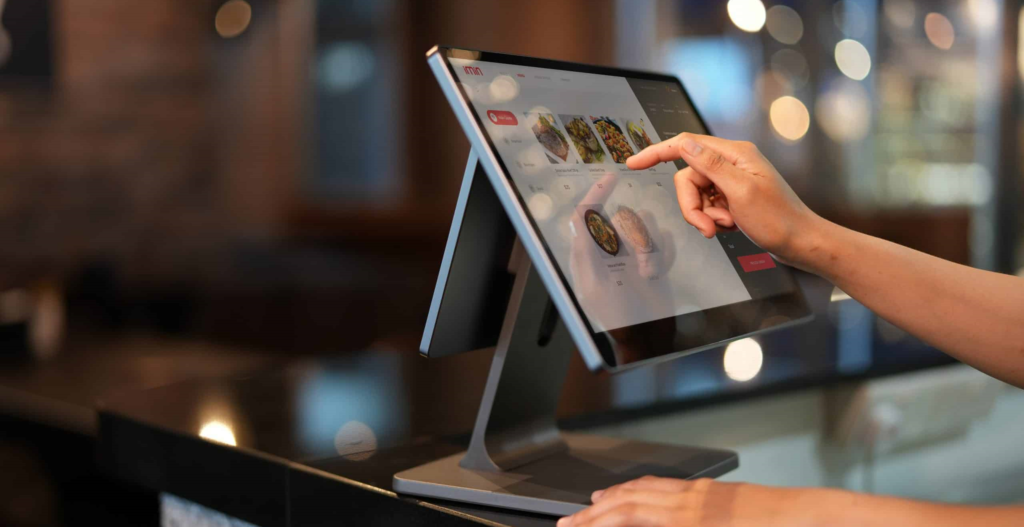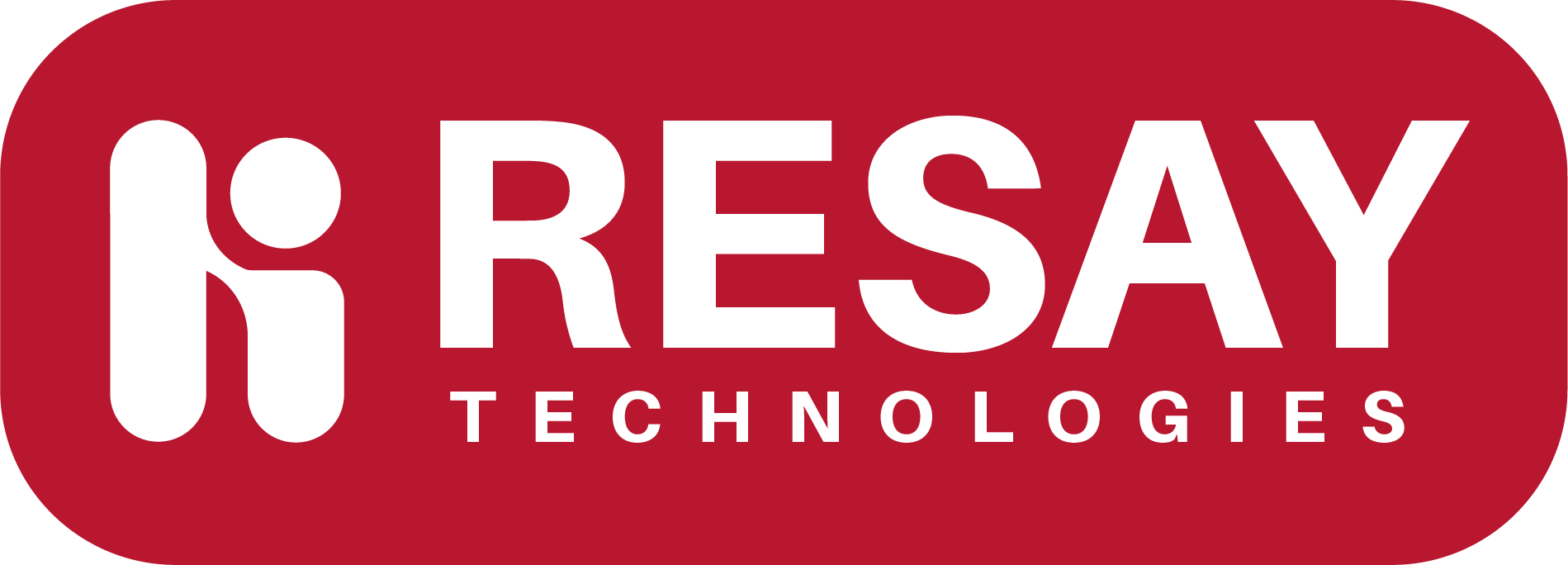Posted by:
Category:
Comments:
Post Date:
The Future of Retail: How Smart POS Systems Are Revolutionizing Businesses

In today’s fast-paced business environment, retailers need more than just a traditional cash register to stay competitive. Smart POS (Point of Sale) systems are transforming the way businesses manage transactions, inventory, customer relationships, and overall operations. These modern, cloud-based solutions offer features that go far beyond simple payment processing, giving business owners the tools they need to thrive in an increasingly digital world.
In this article, we’ll explore what smart POS systems are, how they work, and why they’re crucial for retail, hospitality, and other service-based industries. Let’s dive into the world of smart POS systems and see why they are quickly becoming an essential tool for businesses.
What is a Smart POS System?
A Smart POS system is a sophisticated hardware and software solution that integrates payment processing with additional functionalities such as inventory management, customer relationship management (CRM), analytics, and reporting. Unlike traditional POS systems that only process payments, smart POS systems are designed to enhance business operations by offering a wide array of services in a single platform.
Key Features of Smart POS Systems:
- Cloud-Based Technology: Store and access data from anywhere.
- Inventory Management: Track stock levels and get automatic alerts when it’s time to restock.
- Sales Analytics: Gain insights into sales trends, customer preferences, and revenue data.
- Customer Management: Store customer data, track purchase histories, and build loyalty programs.
- Multichannel Integration: Integrate with online stores and marketplaces for omnichannel selling.
- Mobile Payment Solutions: Accept payments via credit cards, mobile wallets, and contactless payments.
How Do Smart POS Systems Work?
Smart POS systems work by integrating hardware (the POS terminal) with software (cloud-based or on-premise systems). The hardware consists of a touchscreen display, card reader, barcode scanner, and receipt printer, while the software handles all operational tasks such as transaction processing, stock management, and customer data.
When a customer makes a purchase, the smart POS system processes the payment, updates the inventory, records the sale, and captures customer details, all in real-time. This seamless integration of functions allows businesses to manage everything from one central system, improving efficiency and accuracy.
Types of Smart POS Systems
1. Mobile POS (mPOS)
Mobile POS systems are portable solutions that allow businesses to process payments anywhere using a smartphone or tablet. This type of POS is ideal for small businesses, food trucks, and pop-up shops that need a flexible, on-the-go solution. Examples include the Sunmi P2 PRO and SumUp Air Card Reader, which offer contactless and mobile payment options.
Benefits:
- Easy to set up and use
- Low-cost solution for small businesses
- Enables mobility for accepting payments on the go
2. Cloud-Based POS Systems
Cloud-based POS systems store all data on remote servers, allowing businesses to access their POS system from anywhere with an internet connection. These systems are ideal for multi-location businesses and retailers with both brick-and-mortar and online stores. Systems like the iMin SWAN 1 Pro Smart POS Device are designed to provide comprehensive, cloud-integrated solutions.
Benefits:
- Remote access to data and operations
- Automatic software updates
- Scalable for growing businesses
3. Self-Service Kiosk POS
Self-service kiosks are increasingly popular in industries like fast food, retail, and hospitality. These kiosks allow customers to place their own orders and make payments without the need for staff assistance. The Aures Kwartz Universal Ordering Kiosk is an excellent example of a smart POS solution designed for customer convenience and operational efficiency.
Benefits:
- Reduces staff workload
- Enhances customer experience by offering faster service
- Ideal for high-traffic businesses
4. Desktop POS Systems
Desktop smart POS systems, such as the Sunmi T2S LITE Desktop POS, offer a full-featured solution for businesses that need more robust hardware for processing transactions. These systems come with integrated card readers, barcode scanners, and receipt printers, making them ideal for restaurants, retail stores, and large-scale businesses.
Benefits:
- Comprehensive solution for handling high volumes of transactions
- Full integration with peripherals like scanners and printers
- Best suited for brick-and-mortar stores
Why Should Your Business Use a Smart POS System?
1. Enhanced Customer Experience
A smart POS system offers features like faster payment processing, multiple payment methods, and personalized customer service. With the ability to integrate loyalty programs and track purchase history, businesses can provide tailored promotions and rewards that increase customer satisfaction.
2. Improved Efficiency
Smart POS systems automate many business processes, from inventory tracking to reporting, which saves time and reduces human errors. Business owners can focus more on growing their business instead of getting bogged down by operational tasks.
3. Data-Driven Decision Making
With access to real-time sales data and analytics, smart POS systems provide actionable insights that help businesses make informed decisions. Retailers can analyze trends, monitor staff performance, and adjust inventory based on demand, ensuring they are always prepared.
4. Omnichannel Capabilities
Smart POS systems integrate seamlessly with online stores, social media marketplaces, and third-party delivery apps. This omnichannel approach allows businesses to manage sales across multiple platforms from one central hub, providing a seamless shopping experience for customers.
5. Cost Savings
Though smart POS systems may have a higher upfront cost than traditional systems, their ability to streamline operations can save businesses significant money in the long run. Features like automated inventory alerts and staff scheduling reduce overhead costs, while data insights help maximize profitability.
Top Smart POS Brands
1. Sunmi
Sunmi offers a wide range of smart POS devices that cater to various industries, including retail, hospitality, and healthcare. Popular models include the Sunmi T2 LITE ePOS Terminal and the Sunmi P2 PRO Payment Terminal, which are known for their versatility and robust performance.
2. iMin
iMin provides affordable, high-quality smart POS solutions like the iMin Swan 1 Pro, designed for small to medium-sized businesses looking for reliable, easy-to-use POS systems.
3. Elo
Elo’s smart POS systems like the Elo Pay 22-inch Tap to Pay solution are known for their sleek design and user-friendly interface, making them ideal for both retail and hospitality environments.
Industries That Benefit From Smart POS Systems
1. Retail
Retail businesses, from small boutiques to large chain stores, benefit from smart POS systems by streamlining transactions, managing inventory, and providing a unified experience across in-store and online channels.
2. Restaurants and Cafes
In restaurants, smart POS systems like the Sunmi T3 Pro Max simplify order-taking, payment processing, and inventory management. The ability to integrate with third-party delivery apps and kitchen display systems makes operations smoother.
3. Healthcare
Healthcare providers use smart POS systems to manage patient billing, insurance processing, and inventory for medical supplies. Systems like the Elo M50 Mobile Computer offer portability and flexibility for healthcare environments.
4. Hospitality
Hotels, spas, and gyms use smart POS systems to manage bookings, membership programs, and payments, improving the customer experience while reducing manual tasks for staff.
Final Thoughts
Smart POS systems are more than just a payment processing tool—they are an all-in-one solution for managing and growing a business. Whether you’re running a small café or a multi-location retail chain, investing in a smart POS system can enhance your operations, improve customer satisfaction, and increase profitability. With the continuous evolution of these systems, businesses that adopt smart POS technology today will be well-positioned for success in the future.
